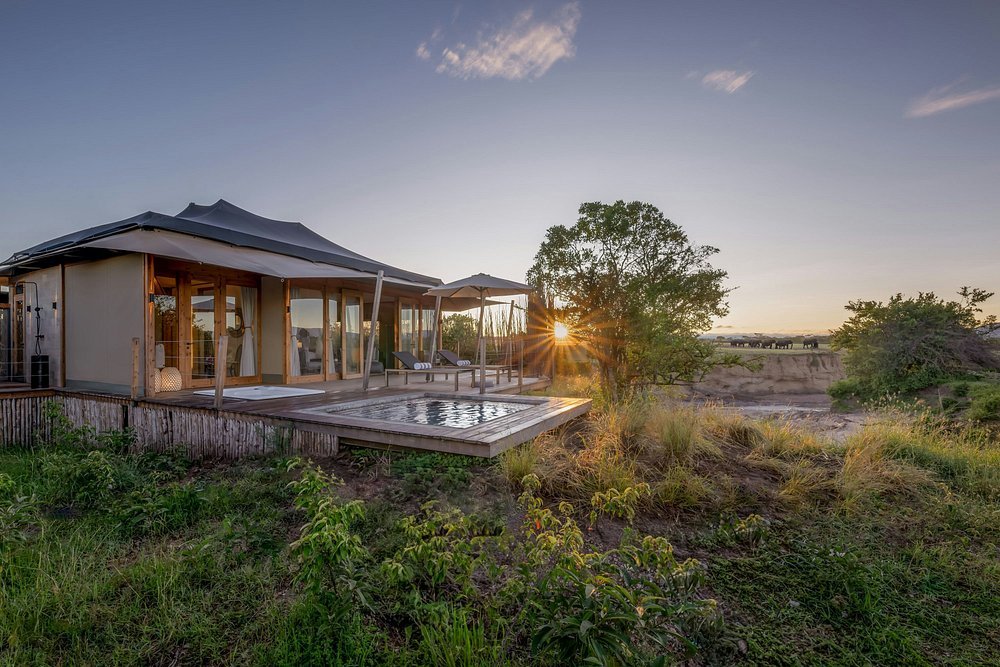What to Pack for an African Safari: Ultimate 2024 Safari Packing List for Kenya
Planning your first African safari? Wondering what to pack, what to wear, and what not to bring? You’re in the right place.
This guide provides everything you need to create the perfect African safari packing list — from essential clothing to travel documents, gear, and expert safari travel tips. Whether you’re heading to Kenya, Tanzania, or a multi-country safari, this is the checklist that will help you pack smart, travel light, and stay comfortable in the wild.
Expertly curated by Annest Kenya Safaris
Includes a downloadable safari packing checklist
Optimized for Kenya’s top destinations: Masai Mara, Amboseli, Tsavo & more
Safari Packing List Overview
| Category | Must-Pack Items |
|---|---|
| Clothing | Neutral-colored shirts, pants, jacket, hat |
| Footwear | Hiking shoes, sandals/flip-flops |
| Documents | Passport, visa, safari itinerary, travel insurance |
| Tech & Gear | Camera, power bank, binoculars, adapters |
| Health & Toiletries | Sunscreen, insect repellent, personal meds |
| Extra Items | Daypack, water bottle, travel pillow, safari journal |
What to Wear on Safari in Kenya
One of the top questions we get from clients is: “What should I wear on safari?”
Here’s the rule: keep it lightweight, neutral-colored, and practical.
Recommended Safari Clothing for Kenya:
- 2–3 quick-dry shirts (long and short sleeve)
- 2 pairs of convertible safari pants or cargo trousers
- 1 light fleece or sweatshirt for early morning game drives
- 1 lightweight waterproof jacket (especially in rainy season)
- Wide-brimmed hat or cap for sun protection
- Sunglasses with UV protection
- Undergarments + socks (3–4 pairs)
- Swimsuit (many safari lodges have pools)
- Pajamas or sleepwear
Pro tip: Earth tones like beige, khaki, olive, and brown help you blend into the environment.
Footwear for Safari
Kenya’s terrain is dry, dusty, and at times muddy. You’ll want shoes that are comfortable and durable.
Pack:
- Hiking shoes or sturdy walking sneakers
- Lightweight sandals or flip-flops (for use at the lodge)
- Optional: hiking boots for walking safaris
Safari Toiletries & Essentials
Many lodges provide basic toiletries, but it’s wise to bring your own:
- Sunscreen (SPF 30+ — the African sun is strong!)
- Insect repellent with DEET (essential for mosquitos)
- Lip balm + hand moisturizer (dry air & wind)
- Personal medications & first aid (band-aids, antihistamines)
- Toothbrush, toothpaste, floss
- Hand sanitizer & biodegradable wet wipes
- Feminine hygiene products (limited availability in remote areas)
Safari Tech & Gear Checklist
An African safari is a once-in-a-lifetime photo opportunity — so be prepared!
- DSLR or mirrorless camera with zoom lens (200mm+ recommended)
- Spare batteries & memory cards
- Binoculars (crucial for spotting wildlife)
- Universal travel adapter (Kenya uses UK-style Type G)
- Power bank (many lodges are solar-powered with limited plugs)
- Headlamp or flashlight for camp use
Essential Safari Travel Documents
Your safari essentials go beyond clothing — don’t forget these:
- Passport (valid 6+ months from travel date)
- Kenyan eVisa printout (Apply online)
- Yellow fever vaccination certificate (if arriving from endemic zones)
- Copy of your safari itinerary
- Travel insurance policy
- Emergency contacts
- Copies of your ID/passport
Optional Extras to Pack
These items will make your safari even more enjoyable:
- Lightweight daypack for camera, water, snacks
- Reusable water bottle
- Safari journal or notebook
- Eye mask + earplugs (for better sleep)
- Travel pillow (for road transfers)
- Snacks (granola bars, dried fruit, nuts)
- Compact guidebook or wildlife checklist
What Not to Bring on Safari
Traveling light helps on safari, especially if flying on small aircraft. Here’s what not to pack for an African safari:
- Bright colors or white clothing (attracts insects & dust)
- Camouflage prints (illegal in many African countries)
- Drones (banned in most national parks)
- Excessive luggage (soft duffel bags are preferred)
Soft-sided bags are recommended. Most safari vehicles and bush planes limit hard suitcases and overpacking.
Seasonal Packing Tips
| Season | What to Adjust |
|---|---|
| Dry Season (Jun–Oct) | Pack layers for cool mornings; bring dust-proof bags |
| Green Season (Nov–May) | Waterproof shoes, raincoat, mosquito nets if camping |
Safari Packing Tips for Families with Kids
- Safari books or wildlife bingo cards for engagement
- Extra snacks & wet wipes
- Kid-friendly sunscreen & repellent
- Portable charger (for tablets/games during transfers)
- Kid-sized binoculars
Planning Your Safari? Here’s Where to Go Next
Explore our top safari tours — perfectly matched to your gear and style:
- 3-Day Masai Mara Safari »
- 3-Day Amboseli Safari »
- 5-Day Tsavo & Amboseli Safari »
- 7-Day Kenya–Tanzania Combined Safari »
- Zanzibar Beach Holidays »
- Explore all Kenya safari packages
Book Your Safari with Annest Kenya Safaris
Need help planning your safari around your packing list?
Expert advice
Tailored safari itineraries
Fast WhatsApp support
Chat with us on WhatsApp »
Email: booking@annestkenyasafaris.com
Get a Free Quote Now »
FAQ: African Safari Packing Questions
Soft-sided duffel bags are preferred — easier to pack in vehicles and planes.
Only if you’re doing a walking safari. Otherwise, comfortable walking shoes are perfect.
It’s not recommended. Black and dark blue attract tsetse flies.
Yes, most mid-range and luxury camps offer same-day laundry services.
Yes they do, but quality varies. Bring essentials like sunscreen and insect repellent yourself.


